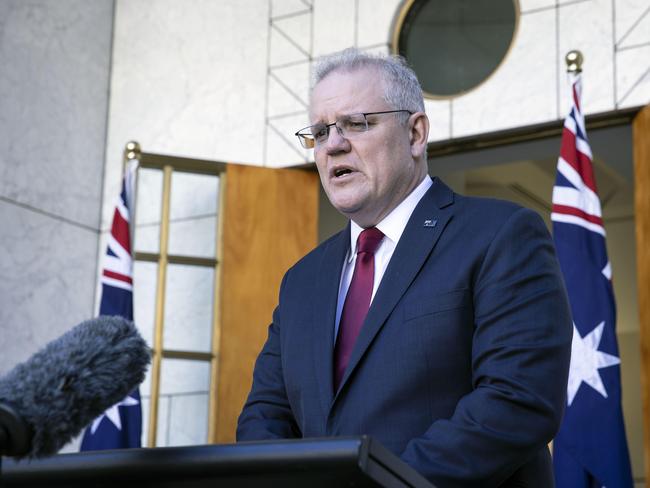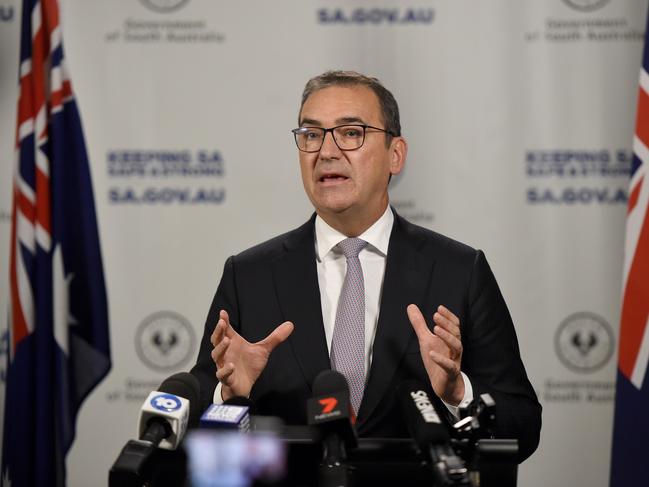How PM’s foreign influence laws could impact South Australia’s agreements with China
SA has 17 separate agreements with different Chinese groups – more than any other state. They are all now under the microscope as part of Scott Morrison’s crackdown on foreign influence.
SA News
Don't miss out on the headlines from SA News. Followed categories will be added to My News.
South Australia’s agreements with China and other countries could come under the microscope as part of Scott Morrison’s new crackdown on foreign influence.
An analysis of agreements between states and foreign countries shows SA has 17 agreements with China, compared with eight in NSW, six in Queensland, Tasmania and Victoria and two in WA.
SA’s sister-state ties with the Shandong province form its main agreement.
That arrangement involves more than a dozen sub agreements on issues such as science and technology co-operation, agriculture and foreign affairs.
The state also has an agreement with the China Development Bank and a water management agreement with Jiangsu province.
SA’s agreements with France, Germany, India, Indonesia, Israel, Indonesia, Japan and South Korea could also be subject to the foreign-influence crackdown.

Premier Steven Marshall has backed Mr Morrison’s push for new powers that would allow the Foreign Affairs Minister to review any existing or proposed arrangements between universities, states and local councils and foreign governments.
Under the proposed laws, the Foreign Affairs Minister would be able to terminate or block deals if they were against Australia’s national interests.
Mr Marshall said SA’s agreement with Shandong province “goes back 30 years”.
“We certainly haven’t contemplated a Belt and Road initiative agreement here between the Chinese Government and South Australia but we do have a good working relationship with China,” Mr Marshall said.
“We understand where the Prime Minister is going on this. We’ll be supportive.”
The University of Adelaide has a memorandum of understanding with China via its Confucius Institute to promote a greater understanding of SA’s relationship with China, which could be in the frame of the proposed laws.

The Group of Eight, which includes the University of Adelaide, criticised the laws on Friday as going to far.
It warned they could undermine work universities and governments have done already to tackle influence and security risks.
Go8 chief executive Vicki Thomson argued the universities already built “very tall fences around small paddocks with ‘secret, nationally sensitive research’ only able to be worked on or accessed by those with security access”.
She urged the government to work on “any gaps it feels remain in Australia’s security landscape” through its existing foreign interference taskforce.
Victorian Premier Daniel Andrews, whose controversial Belt and Road agreement with China is a likely target of the laws, has been scathing of Mr Morrison’s announcement.
China’s Foreign Ministry spokesman Zhao Lijian has also backed the BRI agreement with Victoria, saying it has “greatly improved the well-being of the two peoples”.
“We hope that the Australian side will view China-Australia cooperation and BRI in an objective and rational way, place no man-made hurdles for normal exchanges and cooperation and work for, not against, mutual trust and mutual benefit between the two sides,” he said.
Labor’s foreign affairs spokeswoman Penny Wong backed the laws but urged the federal government to do more to make Australia’s institutions more resilient against foreign influence.
“It’s fine to have the power to knock off a bad deal, but you know what’s even better, making sure people don’t enter into a bad deal in the first place because they know what they should do and what they shouldn’t do,” she said.
Universities Australia boss Catriona Jackson said more information was needed.
“It is critically important to strike the right balance between national security and the research collaboration which is driving so many advances in knowledge – including the search for a COVID-19 vaccine,” she said.
